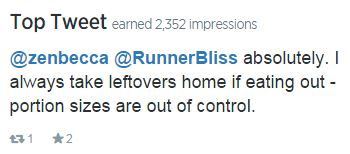Tagged: advice
Crowdfunding Crash Course: Mike Raven - The Travelling Book
- by Alyson Shane
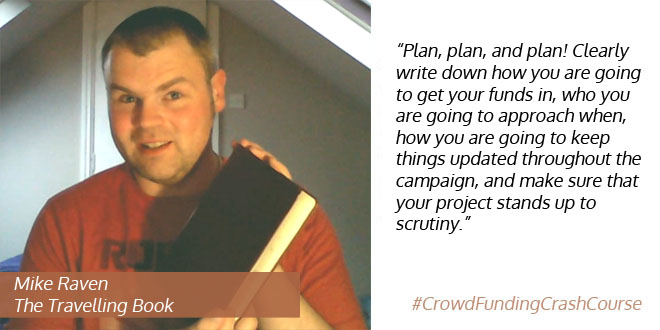
Mike Raven is a blogger and video maker from Hull, UK. He used Indiegogo to generate interest and fund his project The Travelling Book.
Can you briefly describe the Travelling Book Project?
The Travelling Book project is a project to help the world connect.
Essentially, the project was to send out a number of “travelling books” (blank journals) that would travel the world from person to person, with each person writing in the journals information about themselves and their lives. When each journal is full it’s supposed to come back to me for me to scan and put on the Internet, so anyone can see where the journal traveled and who it met. This way you could discover what different parts of the world was like actually from the people living there.
I’m still waiting for one of them to make it home!
Why did you feel that the crowdfunding model was the best way to promote the product
When I first had the idea, I decided that I would send five books out. However, when I asked friends and family if they wanted to get involved, straightaway I discovered that there was more demand than there was books available. And I thought to myself that if they wanted to take part, they might be willing to pay.
The great thing about crowdfunding in this case was that the project could scale e.g. people would pay for as many books as they want, and I could put the extra money generated towards a project website which I wouldn’t have been able to create otherwise.
Why and how did you choose Indiegogo over other crowdfunding options available?
To be quite honest, I tried Kickstarter first, and I couldn’t work out how to set it up to work in my country (the UK)! Also, Geek & Sundry had at the time just used Indiegogo to fund the third season of TableTop so it seemed a sensible choice. Indiegogo was the first crowdfunding website and is the second biggest crowdfunding site after Kickstarter so it is well-established.
All that said, Indiegogo does actually have one massive advantage over Kickstarter, and that’s Flexible Funding - the fact that I would receive the funding (minus Indiegogo fees) even if I didn’t reach my target goal was a fantastic benefit for my project, where I didn’t need to reach the target I set.
How big was your budget before you launched your crowdfunding campaign?
Pretty much nothing! I was willing to buy a few blank journals and mail them out to people out of my own pocket, but bearing in mind that each one sent out costs up to £8 - and I don’t really have much spare cash - I was more or less starting with nothing.
How far along was your project before you felt ready to launch a crowdfunding campaign? In hindsight, would you have preferred to be farther along, or to have crowdfunded earlier?
I jumped into crowdfunding far too early on. I basically had the idea for the project, did a quick Facebook post about the project, from that thought that there might be value in doing a crowdfunding campaign, and set it up with a small amount of planning. It was a fine stage of the project to do the crowdfunding, but I should have planned more.
Can you explain how you prepared for and managed your campaign?
I read a lot of blogs about crowdfunding and how to do it. I learned that I needed to get a good amount of income early on in the campaign so I lined up friends and family to donate right at the start so I could show progress, and that worked well.
I had roughly planned how I was going to promote the project and where to, but to be honest I could have done a lot more.
What tools did you use to market your campaign? Do you feel like you did so successfully, and if not, what could you have done differently?
I used various social media channels - my blog, my YouTube channel, Twitter (I use Hootsuite to set up tweets in advance) and Google+ groups, I also did a lot of work promoting the project manually by emailing literally hundreds of writing groups around the world, going on my local radio station, and I also found my old colleges and universities liked to hear about an alumni of theirs doing something that they put could on their blogs (it worked quite well that I ran the campaign in the summer when they probably didn’t have anything better to promote!)
In retrospect what were your best assets for running this successful campaign? On the other hand, what would you do differently?
Friends and family were a great help to me and kept me motivated throughout. However, I should definitely have planned more. For example, as I say I emailed tons and tons of writing groups. However, they generally only meet once every 4-8 weeks, and as my campaign was only a month, sometimes I’d miss their meetings.
Another thing was a lot of my promotional literature was very amateurish - my graphic designs skills are non-existent, and basic things like having a half decent logo, some good pictures and branding were missing.
What was your biggest challenge during your campaign?
I would say keeping motivated, but it did seem like every time I started to get a little downhearted another donation would come in and cheer me up! Finding the right crowd was difficult - I went for writing groups but I’m not entirely sure that I quite got the right people, I do think to this day that if I had marketed the project better I could have got a huge amount of interest.
What’s the most valuable advice you could share with aspiring crowdfunders?
Plan, plan, and plan! Get clearly written down how you are going to get your funds in, who you are going to approach when, how you are going to keep things updated throughout the campaign, and make sure that your project stands up to scrutiny - what exactly are you going to do with the money, when are people going to get the thing you’re promising, and how are you going to deliver?
This post is part of the #CrowdfundingCrashCourse series. You can find the entire series of interviews and summary posts here.
5 Steps to a Better Social Media Profile
- by Alyson Shane
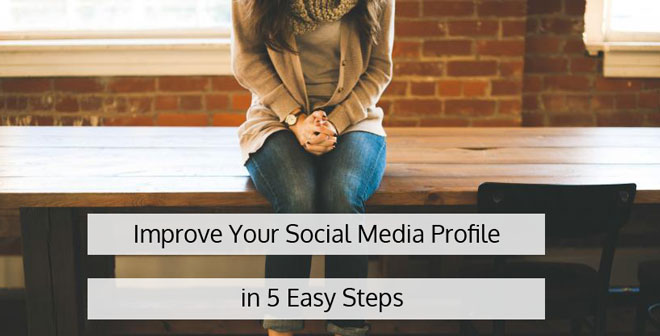
Whether it's on Facebook, Twitter, Pinterest or LinkedIn, it's pretty much guaranteed that your profile on one of these websites will be one of the first things that someone Googling your name is going to come across.
As such, making sure that these profiles are up-to-date is key to attracting new business, gaining followers and (let's be honest) making an impact online.
Luckily it's pretty easy to make sure your profile is up to snuff!
Let's Get Started
1. Never Leave a Profile Empty
People need to know more about you than just your name. Pop in a short bio, a few links to work you've done, or a quote you love. Anything is better than leaving it blank!
2. Use Keywords
For best SEO results, include some keywords into your bio. For example, if you're a mommy blogger who wants to work with family-oriented brands, then state "mommy blogger" in your profile. Here's mine on Twitter:
Marketing Manager by day. Blogs at http://www.alysonshane.com and does freelance copywriting & content marketing by night. Is the Queen of the Internet.
and on Linkedin:
Alyson Shane: Content Marketing & Social Media, Blogging, Speaking
3. Reference your work
Do you run a blog? Are you a regular contributor to a website? Are you a brand ambassador? Make sure to mention it in your bio for maximum credibility!
4. Show some sass
If the space allows, try not to just be matter-of-fact. Add a quote or interesting fact about you at the end of your profile. For instance, my Twitter profile states that I'm the Queen of the Internet.
5. Include a photo
Include a photo of your lovely face! People want to know that they're connecting with a real person, not just an egg on Twitter or a blank face on Facebook. Profiles that don't have real photos scream "spam account" and you don't want to be mistaken for one of those, do you?
What about you?
Did you have any profiles that were blank? What changes did you make?
5 Questions to Ask Yourself About Your Marketing
- by Alyson Shane
The other day while out with my friend Kenton we got to discussing the freelance market, and how more and more businesses are turning to freelance content marketers to help them with their marketing needs.
One of my big takeaways from that conversation was that many business owners don't know when to start "letting go" of certain aspects of their business. As in, they spend way too much time doing (or neglecting) important things that they could simply outsource, even when it becomes detrimental to their business.

With that in mind, I figured I'd put together a short list of questions to ask yourself if you're a business owner who might be trying to shoulder too much of their business burden:
1. When did I last update my website?
While tools for building websites aren't in short supply, maintaining one which is accurate, up-to-date, compelling, mobile-friendly, and SEO-optimized requires more than just a landing page with a picture. A great website needs to do more than just look good - it needs to drive conversions like calls, emails, leads and customers, which includes ongoing investment in SEO content, structure and metadata.
Follow-up Questions:
- Do I want to spend time worrying about updating my website?
- Do I stress about creating engaging content?
- Am I strong enough writer to create content quickly and efficiently?
2. Do I want to keep up with SEO?
Staying up-to-date with the constant changes in Search Engine Optimization is among the most complex aspects of online marketing. It requires keeping tabs on which search engines people are using the most and ensuring that your website and web presence perform well on search-engine results pages after these updates.
Follow-up Questions:
- Does looking at SEO information make me go cross-eyed?
- Am I more interested in running my business than managing where it shows up on Google?
- Am I willing to spend the time to keep up-to-date with new SEO changes?
3. Am I getting results from my search engine advertising?
Techniques like Google AdWords can be one of the easiest and most cost-effective ways of generating new prospects, but if you've ever tried it you know that it requires much more than signing up, setting a text ad and waiting for the customers to roll in.
You need effective, compelling text that drives searchers to an optimized, relevant landing page, and a knowledge of your target audience so you're spending your money on driving visitors who are likely to buy from you. Understanding how to do this requires daily maintenance and analysis.
Follow-up Questions:
- Do I have the time to dedicate to analyzing and refining my campaigns to yield better results?
- Do I know what Google Pigeon is? Do I care?
4. Is my social media fan base my target audience?
You've signed up for a Facebook page and you've got a handful of 'Likes' - but what does that mean, exactly? Are you concerned in vanity numbers (aka, how many 'Likes' you have) or are you looking deeper at what sorts of people have shown an interest in your page?
How often are you looking at things like how many of your fans and followers are even in your immediate service area? How regularly are you updating your sites with relevant, interesting content that engages followers on your social media platforms? How are you leveraging paid advertising opportunities on these sites?
The key to successful content marketing is creating content that generates word-of-mouth and site traffic which boosts your website's SEO.
Follow-up Questions:
- Do I really know how to reach out to my target audience?
- Am I engaging with the right people?
5. Do I know my marketing ROI?
Anyone can pull together charts and graphs which show likes, follows and visitors to your site, but when you look at these numbers and figures, do you know how to make sense of the information there? Do you know how to translate this information into steps that will help your business grow?
Follow-up Questions:
- Do I want to look at daily, weekly, and monthly analytics to pull information from them and then apply them across all all of my marketing efforts?
- Does trying to make sense of my marketing efforts seem like more work than I want to do?
Do you recognize any of these signs as ones that indicate that you might need to start outsourcing your marketing? If not, do you think it's valuable to outsource your marketing? I'd love to know!
-----
Want to keep up with my posts about copywriting, social media and content marketing? Sign up for my newsletter and get them delivered right to your inbox!
Introducing: the Crowdfunding Crash Course!
- by Alyson Shane
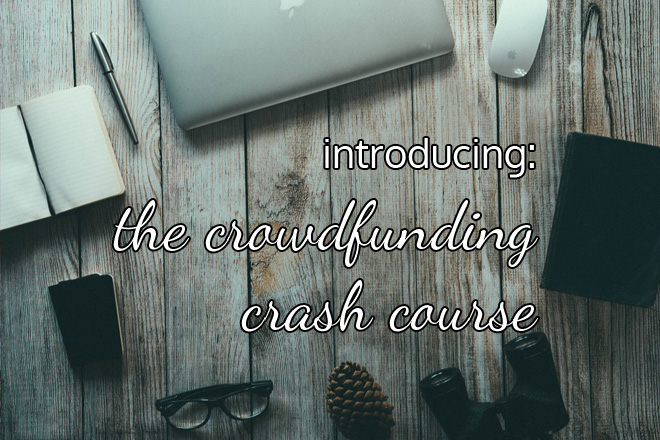
The other weekend John and I finally sat down and watched Indie Game: The Movie. This amazing piece of cinema is from Canadian filmmakers James Swirsky and Lisanne Pajot. It follows indie video game developers as they struggle to develop and release Super Meat Boy and Fez, respectively, as well as interviews with Jonathan Blow, the developer behind Braid.
James and Lisanne ran two successful crowdfunding campaigns to fund the film, and after the movie I got to wondering: what makes a crowdfunding campaign successful?
Having never run a crowdfunding campaign myself, I figured that the best way to gain a deeper understanding of this booming phenomenon was to seek out knowledge from those around me.
With that in mind, I'm launching the #CrowdfundingCrashCourse project, where I'll be interviewing startups, musicians, businesspeople, and anyone else I can find who can share their experiences about running a crowdfunding campaign.
The first post, which will go up this week, is with Adam Brooks of Winnipeg-based film production company Astron-6, who used Indiegogo to crowdfund their movie The Editor.
I'm really excited to be starting this project and to share it with you and am always looking for new participants to share their knowledge. If you've run a crowdfunding campaign, or know someone who has and should be featured as a part of this project, please feel free to give me a shout.
This post is part of the #CrowdfundingCrashCourse series. You can find the entire series of interviews and summary posts here.
You Are Not Your Place of Work
- by Alyson Shane
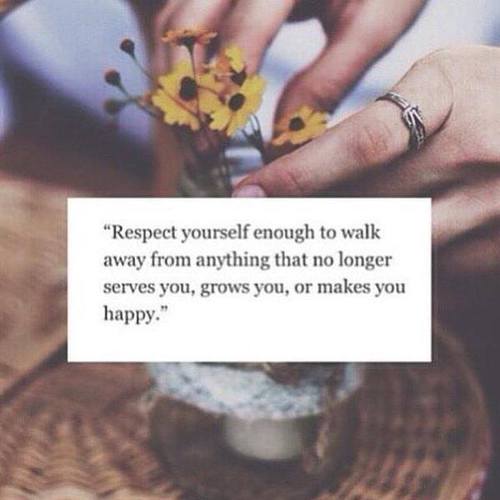
I read an interesting article on Lifehacker today called "The Company You Work for is Not Your Friend" which really struck a chord with me based on an experience that I had right out of university.
I started working for a "business incubator" taking care of their marketing and B2B advertising. They had created the position, which supported the Director of Sales, shortly before hiring me and as such my position didn't have clearly-defined work parameters. This was one of the things that excited me about the position: the ability to use it to grow and make it into my own.
I had spent time and effort pouring myself into the position; trying to help the company and it's clients become more organized and streamlined in their processes. I sat in on extra meetings, just so that I could gain a better understanding of the process. I showed up early and stayed late.
As such, when they let me go after a mere 30 days my starry-eyed, newly-graduated self was caught totally off-guard. Actually, to put it more truthfully, I was devastated.
Clearly something had gone wrong here, but what? What had I done that had led to this decision?
I decided to reach out to my former boss to get some answers.
I called him and left a friendly voicemail thanking him for giving me the opportunity to have worked for him, and asking for a quick chat to clarify what I could do better in my future roles. After a few days I followed up with an email, which was met with even more silence.
In the meantime I found a new job, but I was still distraught. How could I move on from this past experience without learning what I could have done better?
Eventually, close to two months after I was let go, my former boss sent me a terse email making vague excuses about not getting back to me (he lost my phone and his email also stopped working for two months) and essentially stated that he hadn't thought out the parameters of the job before hiring me, and felt that it was in his (and his company's) best interests to let me go rather than work with me to develop the position, despite the fact that this was the original goal when I was hired.
It was then that reality really sunk in: no matter how hard I had tried, no matter how much effort I had put in, it wouldn't have worked out. Not only that, but my ability to learn a lesson and to grow from the experience mattered so little to this person that he put off getting back to me for an egregious amount of time.
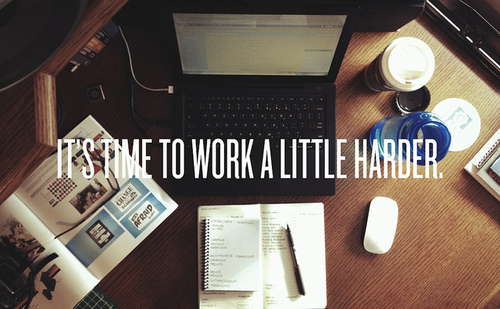
This flew in the face of everything that I had grown up thinking. My parents, and to some extent my formal education, had taught me that if I busted my ass my bosses would always see it and I would always have a safe, secure place within the company I worked for. As such, I went into the situation blindly, assuming that if I just worked hard and did my best, that the fruits of my labour would be rewarded with a long and happy employment.
Obviously this was not the case, and it isn't for many people.
In a way, though, I was lucky to have learned this lesson right out of the gate; many people spend their lives working for a company, only to be laid off during tough times or let go because of personality conflicts with new management. No amount of dedicated work can change the economy or stop someone from being an asshole. You have to cover all your bases.
In the years since, while I've continued to be employed full-time at a 9-5 job, I've made a directed and deliberate effort to maintain my professional network, to keep my resume updated, and to continue to pursue things like freelance work and speaking opportunities which add to my professional portfolio.
Not because I expect to get fired anytime soon, but because I want to have control over my own career and the direction that I want my life to take. Part of that requires being prepared to do so.
Because at the end of the day the only person who is truly dedicated to making your career a successful one, is you.
The Do's & Don'ts of "The Approach"
- by Alyson Shane

Recently I had an encounter which really bothered me: I was sent a very generic email from one of those "job board"-type websites; namely one where freelancers can post their profiles and bid on jobs posted by people looking for help.
Generally I don't use these websites, as aggressively bidding for a contract doesn't generally foster the kinds of trustworthy, friendly relationships that I want to establish with my clients (but that's just me). Either way, this wasn't what bothered me enough to write about it.
What set off red flags was that he mentioned seeing my profile on a content marketing website where I've never registered as an active user. I double-checked to make sure that there wasn't a fake Alyson Shane trolling around it's user base and, as I suspected, no such profile existed.
I have no idea why he decided to add this untrue statement to his email, but it definitely rubbed me the wrong way and I sent him a polite reply thanking him for his time and stating that I wasn't interested in using his job board at this time. End of story, right?
Or not.
A few days later I received another email, from someone at a different email address, asking me if I was looking to take on new freelance work. I always am (shameless plug, let's work together!) and I sent back a friendly reply asking about what sort of work he wanted to do together.
The reply I got was something like this:
"It's great that you're looking for new freelance work! Why don't you try posting on our job board at [website name here]?"
After some quick digging I realized that this was a different person associated with the same website that had sent me the weird, generic, obviously-not-researched at all email a few days prior.
This isn't the first time that I've encountered people who approach me this way, and I'm sure it won't be the last, but I wanted to make a quick list of Do's & Don'ts when approaching someone to give you their business, or to collaborate with you in some way, because these simple rules seem to elude some people:
Don't
Be shady. Like the example that I outlined at the beginning of this post, it's disrespectful to try and weasel someone into using your service or working on a project with you. Be honest.
Assume you know better. If someone declines to work with you, don't send a snarky reply insinuating that they will be doing their audience or reputation a disservice.
Leave a million messages. If you call and someone is unavailable, leave a short voice mail (or follow-up email) and wait a reasonable amount of time before calling again. 5-6 voice mails in the span of a few hours is unacceptable unless your house is on fire.
Expect people to work for free. Most of the time you can expect to pay for people's services and their time. There are some exceptions to this rule, but they are situational and can be negotiated in the moment. Don't reach out expecting for free work or promotions.
Do:
Do your homework. Read their blog, follow them on Twitter, add them on LinkedIn, whatever you feel is necessary to gain an understanding of who they are and what they do.
Be professional. See above. It's not okay to send nasty emails to people just because they didn't give you the response that you were looking for.
Be Clear. People can't help you solve your problems if you can't articulate them. Skip emails full of buzzwords and get straight to who you are, what you do, and what you need.
Be Available. If you've scheduled a specific time to have a phone call or Skype meeting, give some notice if you will be unavailable and, if you can reschedule, make a point to be available at that time. Other people's time is as important as yours, so try to be available when you say you will.
Email whenever possible. This is more of a personal preference, but personally I find that sending an email (or filling out a contact form) is much more respectful of my time and allows me the opportunity to do a bit of research before responding. This way I can be prepared.
See? It's easy! By following some simple rules we can make every interaction a much more respectful and pleasant one!
Do you have Do's or Don'ts to add to this list? I'd love to hear them!
Regarding "The Unbearable Lightness of Twitter"
- by Alyson Shane
Yesterday I read a post on The Atlantic by Derek Thompson titled "The Unbearable Lightness of Twitter" in which he argues that one of the most prominent and popular social networks is nothing but a "hollow sharing economy."
It's an interesting piece, and as a result of Thompson's analyses I decided to take a look at my own analytics to see how I was doing.
By Thompson's own measure, I'm not doing so hot. In February I've clocked in 208,000 tweet impressions, and none of my top tweets have anything to do with my own website. In fact, this is my top tweet from this month:
To be fair, my workload has ramped up and I haven't spent as much time on Twitter as I usually do, but still, in terms of gauging Twitter as a useful tool for driving traffic, clearly it's not doing what I need it to do.
Or is it? I guess that's a matter of perspective.
Thompson's frustration with Twitter is that 99 percent of his work stays on Twitter - that is, the engagement which happens with Tweeted content rarely gets sent back out into the web. He also states that Twitter is effective only as a self-contained portal for images and observations, and calls it "worthless" for the singular purpose of driving traffic back to your own website.
Here is where he, and many others make their mistake: Twitter is a tool that is effective at creating conversations and sharing content, not driving targeted clicks.
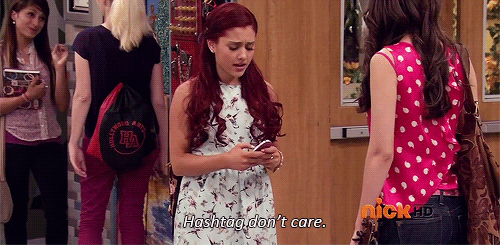
I tend to think about Twitter as being at a big party: you've got tons of people present, all having small conversations that you can participate in. If you go to a party and stand in the middle of the room and just shout out statements (the analog equivalent of Tweeting out nothing but links to your site) people won't care. Just like a real-life conversation, you have to engage with people on Twitter provide ongoing proof there is a reciprocal interest.
A quick glance at my Google Analytics for this site shows me that, on average, 30-40% of my traffic comes from Twitter. I haven't drilled down into what that looks like in per-tweet-clicks, but the fact that a large percentage of my traffic (which does pretty well, if I may say so myself) comes from a social network that is apparently terrible at driving traffic interests me.
Here's what I think: the difference is that I'm not on Twitter solely to drive traffic to my website. Sure, I want people to visit my site, but that's not the only focus of interactions on Twitter, and because I spend a lot of time showing an interest in other people, when I post a link to my site and say "here, read this" people click through because I've already proven to them that what I have to say has value. That's where Twitter really shines as a sharing tool.
So when Thompson says that he doesn't think that businesses should focus on Twitter as a means to drive traffic to their website, I agree, but that's because that's not really what Twitter is about, anyway. It's about participating in engaging conversations that make people care about you and what you have to say.
While 99 percent of your work might stay on Twitter, getting that 1 percent to jump over to your site requires that you provide them with good, ongoing reasons to do so. We do this by making connections and by developing relationships with the people who follow us, which generates interest not only in our Twitter profiles, but where we invest our time on other sites as well.
Making the Case Against Multitasking
- by Alyson Shane
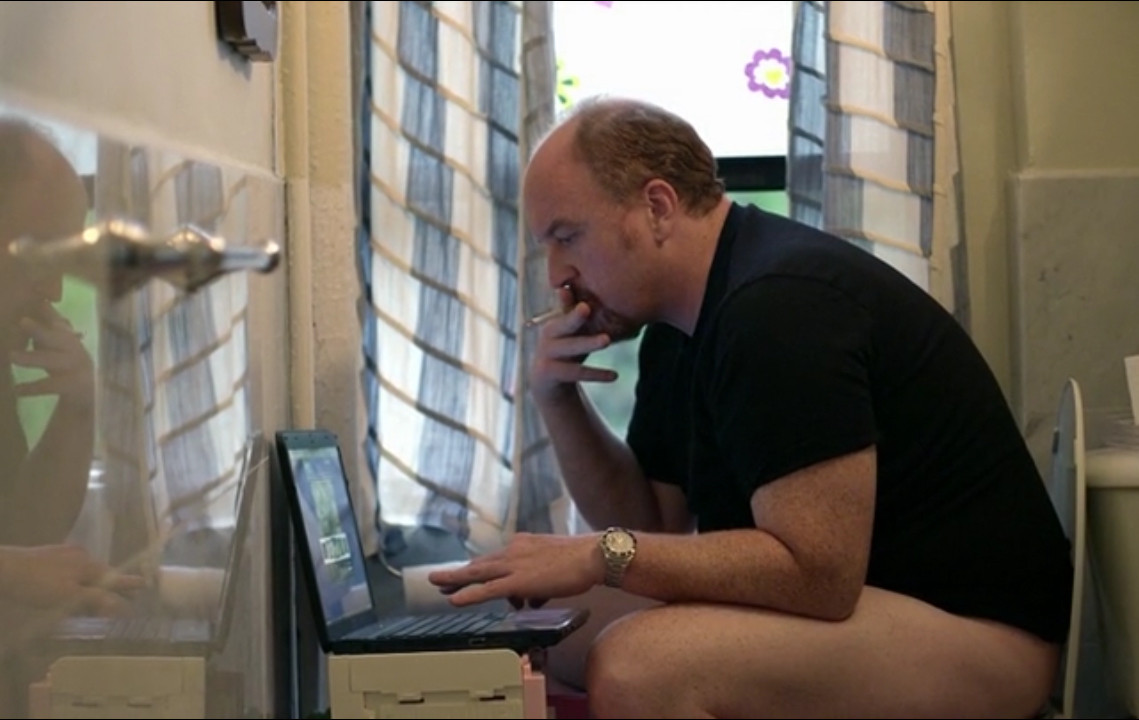
My 9-5 is a great example of how to get nothing done. I'm the Marketing Manager for two RE/MAX agents and I can't count the amount of times that I've sat down with every intention of getting a ton of work done... only to find that four hours have passed, I've answered the phone fifteen times, and I'm nowhere on my project.
This is magnified when I sit down to do any of my freelance work, because having all of those other tabs is sooooo tempting and I'm not only managing my own creative projects, networking, planning and administrative, but someone else's, too! It's so tempting and easy to get sucked in to doing something, anything other than what I'm doing. But, every time I switch to a new task my brain has to engage, disengage and reengage somewhere else and I lose precious work time that I could be spending
As such, I've had it with trying to multitask.
Sure, we might feel productive while simultaneously checking our email, social media feeds, taking phone calls, writing, etc, but what we're actually doing is diving up our attention and energy and actually half-assing all of it instead of being really, really good at one of those things, and studies show that a person who is interrupted takes 50 percent longer to accomplish a task. Not only that, we can make up to 50 percent more errors.
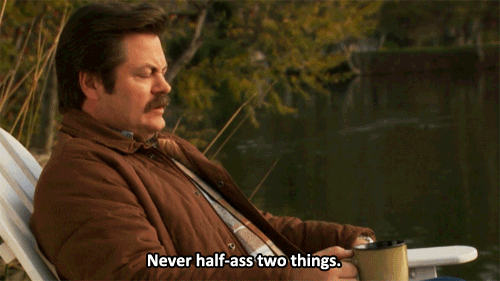
Here's what I do to stay focused and fight the urge to multitask:
Work uninterrupted for designated periods of time. I plug in headphones so there are no external distractions and put my head down and just get through it. Hours will pass in the blink of an eye and my productivity skyrockets.
Set alarms for checking emails & alerts. Especially when I'm waiting to hear back from a client, or working on a social media project. I can't ignore them.
Put my phone face-down. Usually I put it to my side, or underneath something, as the little alerts drive me batty and fill me with that "must respond now!" urge. Some people recommend putting your phone in another room, but honestly I'm way too attached to mine to ever do that. Plus I like it's pretty Dalek case.
Stretch. I find my attention starts slipping if I start getting uncomfortable; it's kind of like my mind is trying to convince me to continue to sit still by going "oh hey, check out what's happening on Twitter!" If I find myself slipping into this mindset I'll get up (without checking my phone!) and do a standing torso twist stretch (this also cracks my back, which feels amazing. Don't judge!).
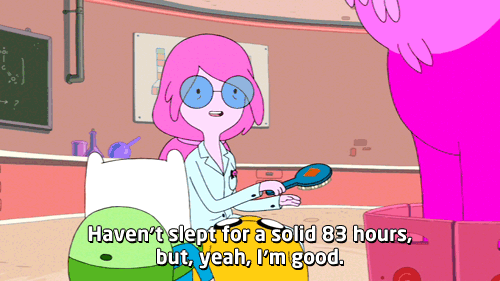
Get some damn sleep. I'm terrible for this. I'll work until well into the night without realizing it; or, I'll realize that it's 11:45pm and think "just a little more work" and then it's almost 1am. It doesn't help that I happen to date a workaholic who is just as bad as I am, but we're both slowly trying to form habits that make us more productive overall, not just when it's crunch-time.
Cut back on caffeine when I'm working. This is the hardest of all. I love coffee and my 9-5 is conveniently located near Little Sister and Thom Bargen (my favourite haunt) is a short walk from my house. Not only does caffeine consumption mess up your sleep patterns (see above, we already know this is an issue for me) but that little kick-start to my heart that a cup of strong coffee frequently is counter-productive because my mind starts racing too much to focus on a single project.
The moral of the story is this: we didn't evolve to live our lives this way, looking at a million things a minute. We walked long ways and focused on singular activities, so it's important to be mindful of the ways that our contemporary lifestyles go against what's natural, and how we can curb those behaviours to actually be productive and happy.
Do you have any tips for staying focused? I'd love to hear them!
How to Be Positive (or Give It a Damn Good Shot)
- by Alyson Shane
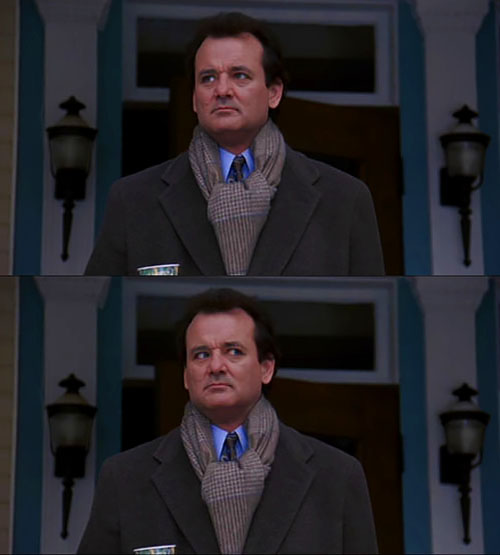
Since I wrote my #BellLetsTalk post the other day I've had tons of people reach out and share their experiences with me - largely stating that they, too, struggle with feelings of negativity and often have a hard time not getting overwhelmed with negativity.
I really, really struggle with negativity. I'm was raised to be a pessimist and to always look on the bad side of a situation. My first reaction to pretty much anything that stresses me out is to get my back up and start spiraling mentally into a black hole of what if's and this is terrible's.
So as a bit of a follow-up to that post I wanted to share a few of the steps that I've taken (and currently practice) to try and cope with my negativity and be more positive.
Smile
I remember dating a guy who, years ago, went on a huge rant about how a friend-of-a-friend changed his whole outlook on life because he made himself smile all the time. I thought he was a total whacko, and while his story might be a slight exaggeration, there's science behind the fact that smiling makes you feel happier and I can personally attest to the fact that smiling, even when I'm sitting around and typing something makes you feel happier.
Focus on positive speech
I wrote a post a few months back about my efforts to remove negative words from my vocabulary and I'm happy to report that not only have I been successful, but that I've been able to encourage other people in my life to start curbing their use of hurtful words as well.
However, because of my anxiety I still routinely refer to myself as being "stupid" - as in "I can't believe I forgot that, I'm so stupid!" which has got to stop. I know it, I'm working on it, and if you find yourself doing the same thing, try and catch yourself when you think it or say it aloud.
There are enough people in the world who are going to put you down, there's no need for you to help them out.
Additionally, try to focus on talking about positive topics and ideas. Venting about your tough day or that thing that your partner did that pissed you off might feel good in the moment, but vocalizing it adds more value than it probably deserves, and only serves to reinforce the negative things that you feel.
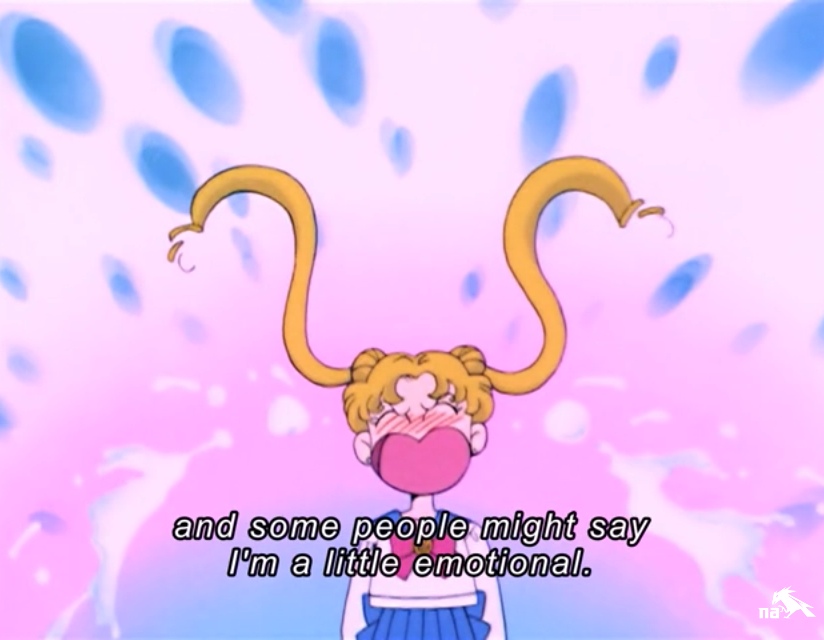
Focus on the good around you
A lot of advice of this nature will tell you to keep a journal of things that you're thankful for, but if you're like me and feel a bit silly doing it, just make a point to try and find things that make you smile, or small positives throughout your day.
For me, a big part of being able to maintain this kind of thinking is my partner, John. We both vocalize the good things in our lives often, and probably say things like "I'm so lucky for XYZ" a few times a day. Personally, my Instagram #Project365 is also making me take a more critical look at the world around me - instead of going to and from places, I'm actively looking for things to photograph and admire and share. It's been a lot of fun, and it keeps me mindful of my surroundings.
Ditch the cynics
Do you have friends that just love to sit around making super-snarky comments about how awful the world is, how much their life sucks, and how nobody "gets them, man"? Yeah, we all have at one point or another, but in order to start leading happier, more productive lives we need to rid ourselves of those bad influences.
This can be incredibly hard to do, especially if you've got a super-tight circle of friends. I was fortunate in that I lost almost all of the negative people I knew as the result of a breakup, which forced me to take a long, hard look at the attitude and lifestyle habits that I had developed as a result of those influences.
Not everyone is as lucky as I am, and it can be hard to start putting distance between yourself and those negative people, but once you start spending your time with more positive, energetic, driven individuals you'll find that your attitude changes naturally over time. It can seem intimidating at first, but actively making an effort to hang out with more positive people will result in a more positive you.

Sweat it out
I'm not saying start drinking protein powder for every meal and putting on massive gainz at the gym, but exercising releases feel-good chemicals and makes you happier, it helps relieve stress and your body will look smokin' hot if you keep at it long enough.
If you're like me it can be hard to find exercise that doesn't feel like a drag after the first 30 seconds (I lift weights, mostly, because cardio gets boring fast). Most people just default to cardio because it seems like the go-to exercise, but there are so many other ways to get your heart racing - check out your local gym for classes, cycle around outside, go swimming, whatever!
Pay it forward
Being nice to other people makes you feel good. I'm not saying that you have to volunteer at a soup kitchen every night of the week (though if you want to that's cool, too) but doing small things like smiling at people on the street or holding doors open for strangers really make a difference in someone else's life and make you feel fabulous as well.
One thing I always make a point to do it thank my bus drivers. I commute via transit during the winter months and always make a point to thank the drivers if I'm exiting the bus at the front door. Think about it: these people basically drive in giant circles all day so that you can go to and from where you need to be. It's a pretty important job when you think about it, so I always let them know I appreciate it.
Remember, it takes time
These tips won't always work. There will be days when you feel blue, get the Mean Reds, or just need to bitch it out over a cocktail with friends. That's totally okay. Becoming a more positive person isn't going to happen overnight, and the effort and things you learn as you grow will help contribute to long-term happiness. Give yourself a break and smile.
What about you? Do you have any tricks for staying positive? Let me know!
10 Things I've Learned While Dating an Entrepreneur
- by Alyson Shane
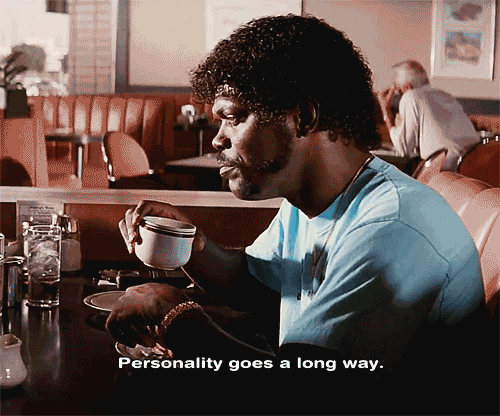
"Everyone says that they want to date someone driven" John said to me last night "but most people can't actually date someone with drive and ambition because they feel threatened by it."
He made this comment as a result of a conversation we were having about the kinds of things that we talk about with one another.
Mostly, we talk about work, projects we're working on (freelance or otherwise), ideas we're brainstorming, and articles that we've read online. Most of our conversations are purpose-driven, go very deep, and circle around a few key topics such as Virtual Reality, product development, writing, content creation, and our views about life and our place in it.
While, admittedly, John is slightly more "on" 24/7 than I am (I'm more like 23/7, sometimes I need to switch on the Wii and play Twilight Princess for the zillionth time) we're both pretty much talking, thinking, and working on stuff constantly.
Dating someone who is this "on" all the time has been an adjustment. I've never dated an entrepreneur before, and making the switch from dating guys with regular 9-5 jobs that get forgotten once 5pm Friday rolls around has taken some real getting used to.
Below are 10 things that I've learned in this crazy almost-year of being together:
1. Get ready to have a lot of free time
Personally, this works well for me because I also have a ton of stuff on the go and we can optimize our time together, but for a lot of people this would be a real challenge -it's hard to be with someone who is constantly thinking about or talking about work.
However, this is a good opportunity to make sure that you don't get too caught up in the relationship and become one of those couples who goes into complete hibernation mode once you get together.
2. Passions don't count as "work talk"
I still struggle with this, honestly. Sometimes I just don't want to talk about VR anymore -I don't want to bounce ideas about virtual experiences all night, and because so much of what my partner's work does involves VR sometimes I have a hard disentangling talking about VR the passion from talking about work.
But it's important to make, and remember, this distinction.
3. Take an active interest in their work or you will go crazy
This relates to the previous point. I learn by seeing and doing, and if I'm just looking at a screen and saying "mm-hmm" my eyes glaze over pretty fast.
By asking questions, giving feedback and trying to be involved in whatever they're working on, it not only keeps you from going crazy, but also makes them feel validated, important, and can provide them with feedback or ideas that they may not have received otherwise.
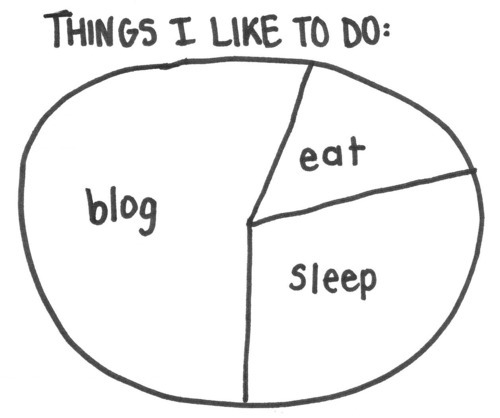
4. Kiss your bender days goodbye
When you work for yourself every day lost to a hangover is a day where you could have been improving your service or replying to clients.
So the days of partying from dusk until dawn and depleting all of your brain waters to the point where going on Facebook is a challenge quickly become a thing of the past.
5. They will forget things. All the time.
At least, things that aren't work-related. John can recite minute details about code he's written or the intricacies of a project he's working on, but he needs constant refreshers on what we have planned this weekend, the grocery list, or phone calls that he needs to return.
It's not that they don't care -far from it, in fact- but the space in their mind is at a premium and if something isn't an immediate, pressing need (like work) then it gets filed away somewhere, likely to never be seen again.
6. You aren't their only priority
Let me be clear: a good partner will always make you feel special and like you are a major priority in their life, but you shouldn't be their only priority and you might not even be their top priority all the time.
There are definitely days (a lot, in fact) when I know that John's company is taking precedence in his head over our relationship, and that's okay, because I know he will make "us" a priority if it needs to be.
7. You don't have to be like them
While being with someone who is motivated 24/7 can do wonders for your own motivation and productivity, when you just want to spend the day vegging out eating an entire can of Pringles while marathon-watching BoJack Horseman and they'd rather work on, well, work, it can be hard not to feel like you're just wasting your time in comparison.
But it is totally okay and healthy to take breaks, which leads me to my next point...
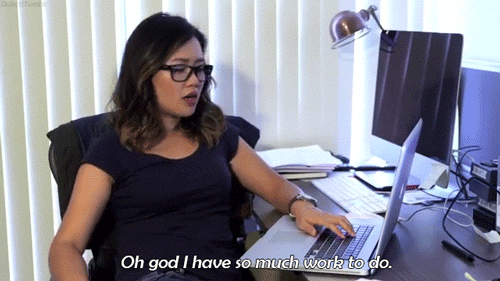
8. They need help "turning off"
If left to their own devices they will just work and work and work. That's it. So sometimes they need some gentle (and sometimes not-so-gentle) prodding to actually relax and not just focus 100% on work-related stuff.
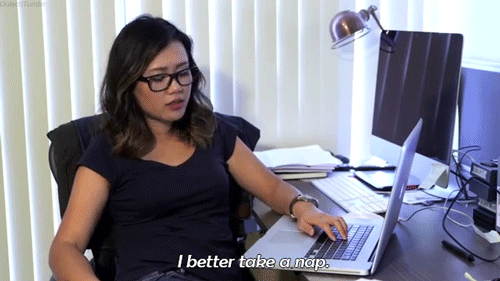
9. Forget having a regular schedule
Traditionally-employed people tend to have pretty predictable schedules; even people working shift-based work, like a server or a nurse, generally have a pretty firm grasp on when they are and aren't available.
When you're dating an entrepreneur every available hour of the day can (and likely will) be put towards working on something. This is in addition to the meetings, meetups, Skype calls, conferences, hackathons, and other hustle-type activities that come with the entrepreneurial lifestyle. That's just how things are.
10. You will have doubts early on, and that's okay
Dating someone who is constantly focused on other things can be taxing, and I have definitely had moments where I feel lonely, annoyed, or frustrated -and I'm a pretty driven person, myself!
But the longer we've been together the more I've tried to adjust my expectations around what are and aren't reasonable demands to make of my partner, and when it's okay to make those demands (spoiler alert: I'm not always the greatest at identifying those times...)
There have been difficult moments, sure, but more often than not this crazy roller-coaster ride has been filled with moments of exhilaration, excitement, pride and, most importantly, fun. I wouldn't trade it for the world.
Have you dated an entrepreneur? What was it like for you? Did I miss anything? Tell me!

